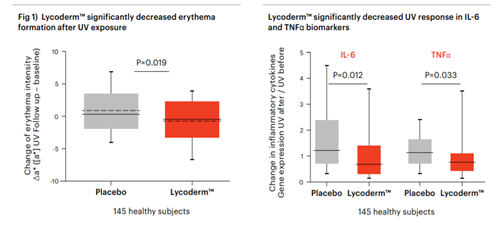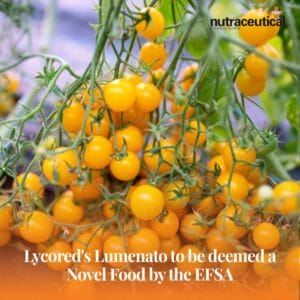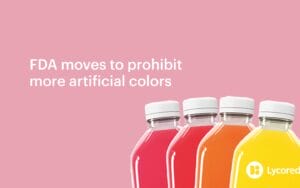Lycored’s Lumenato to be deemed a Novel Food by the EFSA
The carotenoid-rich nutraceutical has been proven to support skin health by protecting it from UV exposure and collagen degradation
The next stage of Lycored’s research was to test the effectiveness of Lycoderm™ through a well-controlled, full-scale,
double-blind clinical study. The research, commissioned and funded by Lycored, was conducted in Dusseldorf in Germany and Dundee in the UK. The principal investigator was Professor Jean Krutmann, a leading researcher in the field. It has been published in the peerreviewed scientific journal Skin Pharmacology and Physiology.
Objectives
The aim of the study was to examine the bioavailability,
safety and efficacy of Lycoderm™, and to explore its
potential in enhancing skin resilience and balancing
skin response to UV challenge. Specifically, it sought to
evaluate the effects of Lycoderm™ in a model of UV
induced photodamage in healthy subjects.
Methodology
The study design deliberately included physiological
parameters such as the intensity of erythema that
are easy for consumers to relate to. It also included
mechanistic biomarkers to gain new insights into the
cellular mechanism.
Given that the ingestible skincare space is increasingly
popular with men, the study was strategically designed to
include both genders. One hundred and forty-five healthy
men and women completed a double-blind, randomized,
placebo-controlled parallel group study.
They supplemented for 12 weeks with softgels containing
either Lycoderm™ or a placebo. They were exposed
to controlled local UV radiation at baseline, and again
at the end of supplementation. To gain insights into
physiological benefits, erythema intensity was measured
following UV exposure. Additionally, to gain insight into mechanism of action at
the cellular level, biopsies from UV-exposed and control
areas were collected and gene expression analysis was
performed. Finally, to verify the causative relationship between
treatment and effect, Lycoderm™’s bioavailability was
evaluated.
Results and conclusions
Lycoderm™ was found to be safe and well tolerated.
A statistically significant decrease in erythema formation
was observed in the group taking the supplement
compared to the placebo group. At the molecular level
there was a reduction in pro-inflammatory cytokines.
This more balanced complexion was reflected in reduced
erythema, or redness of the skin. (Fig 1)
The results provide specific evidence for the mechanism
of action of Lycoderm™, demonstrating a significant effect
on pro-inflammatory cytokines induced by controlled
UV exposure. They also provide definitive proof of the
effect on physiological parameters such as reduction of
the intensity of erythema caused by UV exposure. These
parameters were correlated to a significant increase in
levels of the different carotenoids, supporting a causative
relationship between supplementation with Lycoderm™
and benefits for the skin.


The carotenoid-rich nutraceutical has been proven to support skin health by protecting it from UV exposure and collagen degradation


On April 22nd, the FDA announced in a press release its intention to phase out petroleum-based synthetic dyes in food, beyond Red 3. While industry actors seem to be divided...
Interested in speaking directly with a member of our team?
Click below to get in touch.